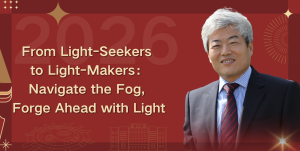09 Apr 2025
From March 28 to 30, the Doctor of Education (EdD) program at Xi’an Jiaotong-Liverpool University (XJTLU) held a successful three-day residence learning event at Harrow LiDe School in Nanning. The event brought together over 20 education experts, frontline administrators, and students from two EdD cohorts, both domestic and international, to explore cutting-edge topics and innovative practices in higher education and K-12 schooling through thematic discussions, cultural experiences, and international conferences.
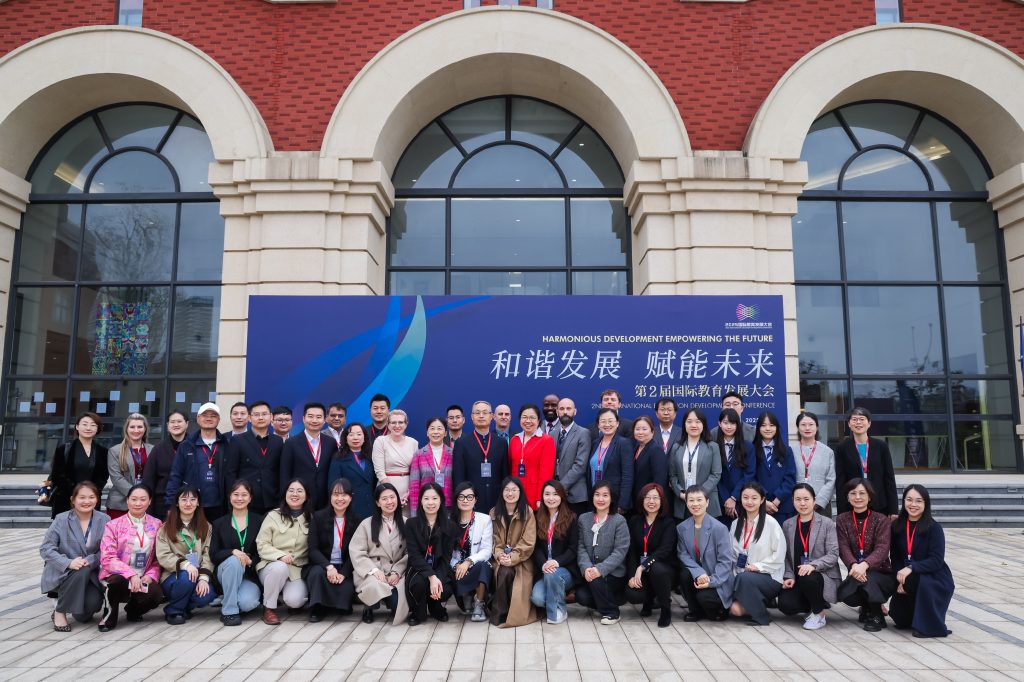
Ms. Linwei Li, Chinese Principal of Harrow Nanning and a current EdD student (below), introduced the school: “As the first truly international bilingual school in Guangxi, Harrow LiDe Nanning inherits the 453-year excellence of Harrow School in the UK, blending Eastern and Western educational philosophies. Our liberal arts curriculum aims to cultivate future leaders with a multicultural vision, opening doors to global success for our students.”
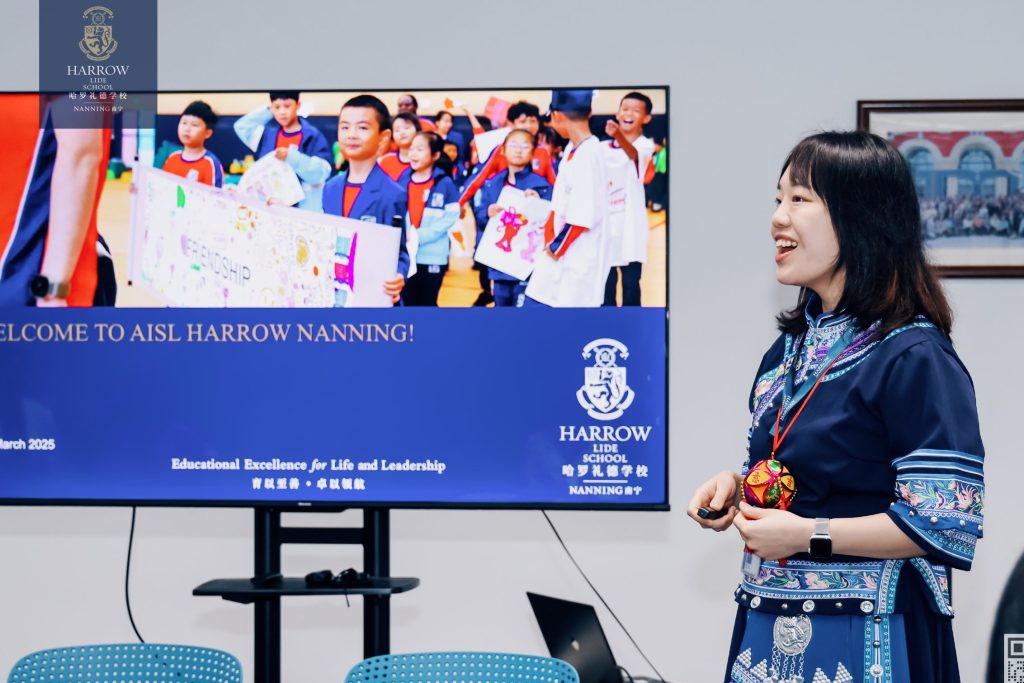
Professor Rong Wang (below), Director of the Doctor of Education programme at the Academy of Future Education, gave a detailed introduction of the three-day learning arrangement in the opening session. The three-day course consisted of six workshops, three theoretical studies, two rounds of reflective seminars and one educational conference. She particularly emphasized, “This Nanning offline course adopts the cyclic learning model of ‘theory-practice-reflection’, aiming to inspire participants in real educational scenarios.”
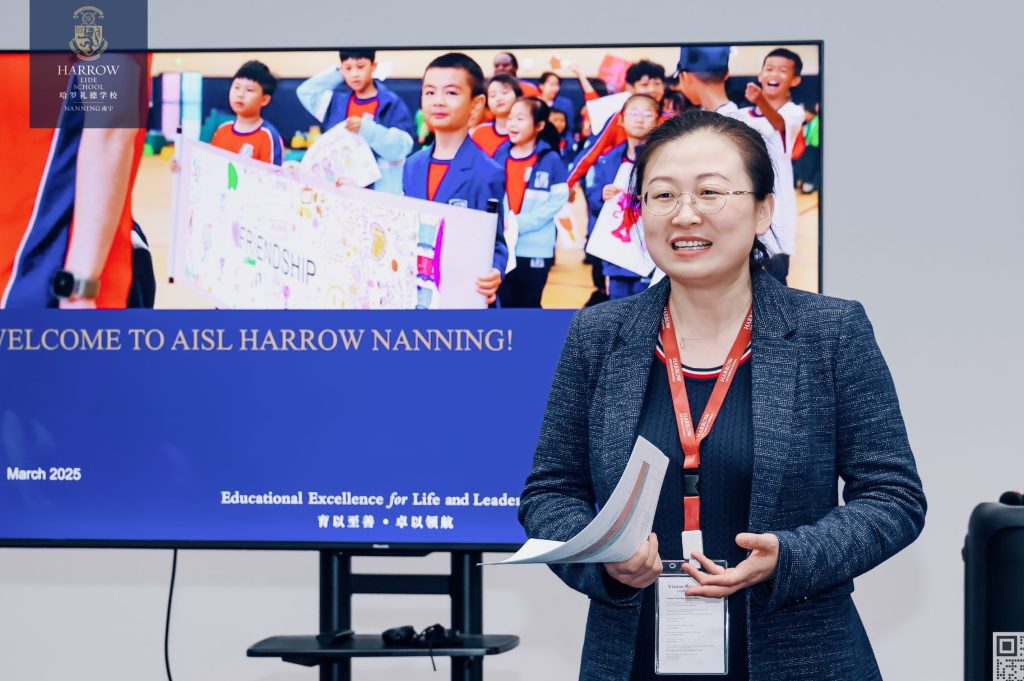
Professor Xiaojun Zhang(below), Chief Education Officer at XJTLU and Executive Dean of the Academy of Future Education, stated: “We brought our students here not for abstract theory, but to engage directly with real-life educational environments. Through observation, dialogue, and practice, we encourage critical reflection on real philosophical issues in education. This 'learning by doing' approach lies at the heart of the XJTLU EdD program’s mission to develop reflective practitioners.”
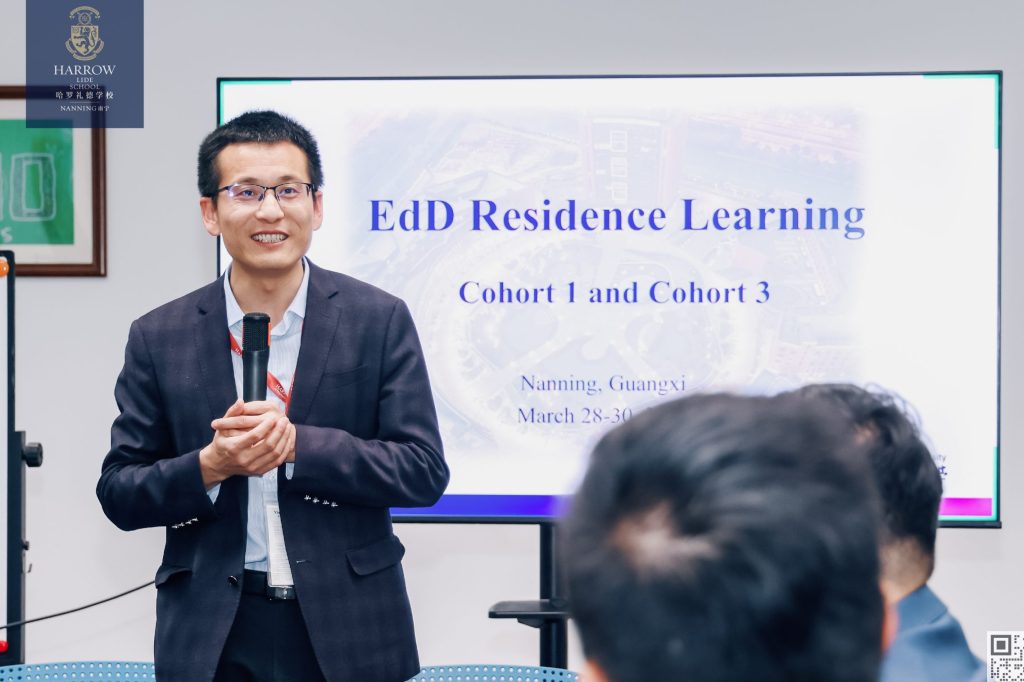
Diverse expertise converges to explore core issues in future education
Dr. Ahmed Hussain, Chief Education Officer of AISL Harrow Education Group, Emily Gallagher, Vice Principal of Harrow School Nanning, and Dr. Noman Mohammad, Head of the Department of Educational Leadership and Management at Kenyon University in Wenzhou, held in-depth discussions with students on key topics in educational development.
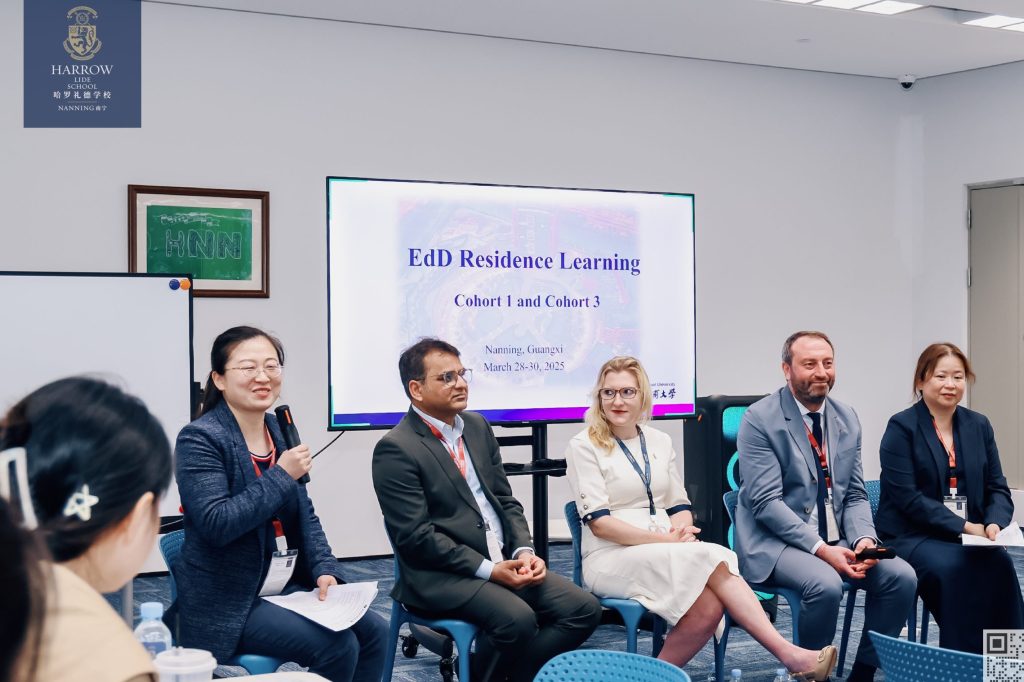
Key topics were explored with Professor Yang Bo, Chair of the Department of Educational Economics and Management at the Peking University Graduate School of Education; Professor Ye Xingyi, Director of the China-ASEAN Institute of Public Policy at Guangxi University for Nationalities; Associate Professor Yang Mengxi from the School of Economics and Management at the University of Chinese Academy of Sciences; and Mr. Lin Zili, Principal of Donglian Hexin School.
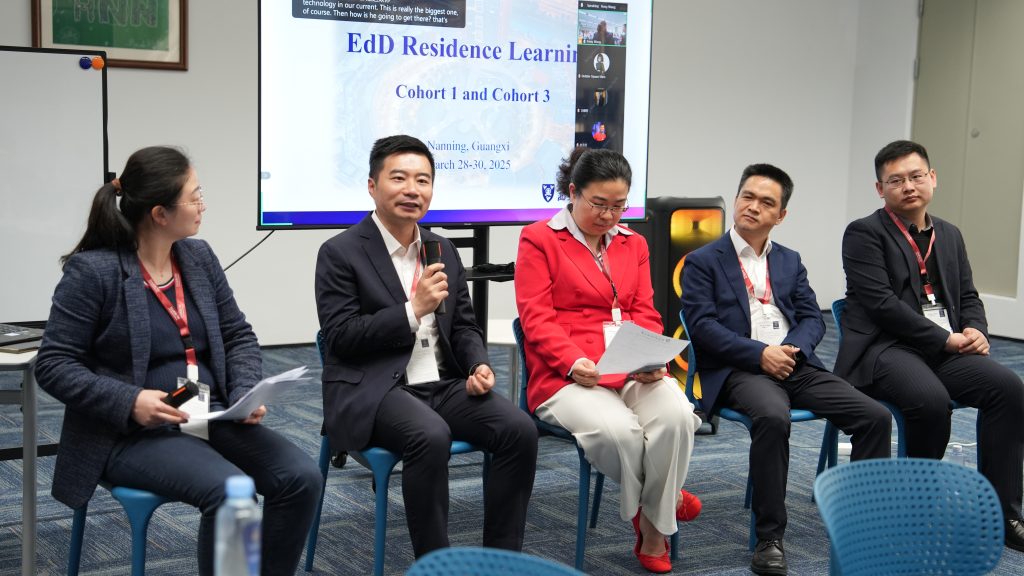
Two seminars with multi-location linkage through an online platform. During the Q&A session, EdD students had in-depth exchanges with the experts on specific educational practice issues. During the Dean's Afternoon Tea session, Professor Zhang had an in-depth exchange with the doctoral students, and the discussion centered on a number of key topics: firstly, they exchanged views on the arrangement of campus life and the construction of community outside of the academic activities; secondly, they paid special attention to the possibility of the sharing and exchange of resources between higher education, basic education, and vocational education; and they provided professional guidance on the methodology and technological support for data collection and the introduction and application of cutting-edge technologies in the doctoral studies. Finally, there was a constructive dialogue on the introduction and application of cutting-edge technologies in the college. This open exchange provided valuable advice and guidance for the doctoral students.
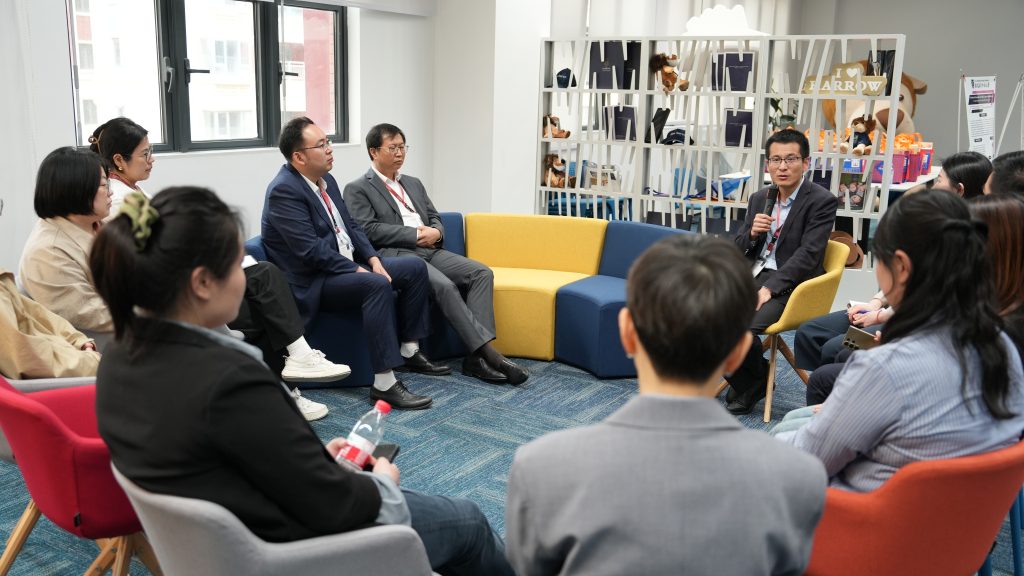
On March 29, the Second International Forum on Educational Development and EdD Exchange was held at Harrow LiDe School.
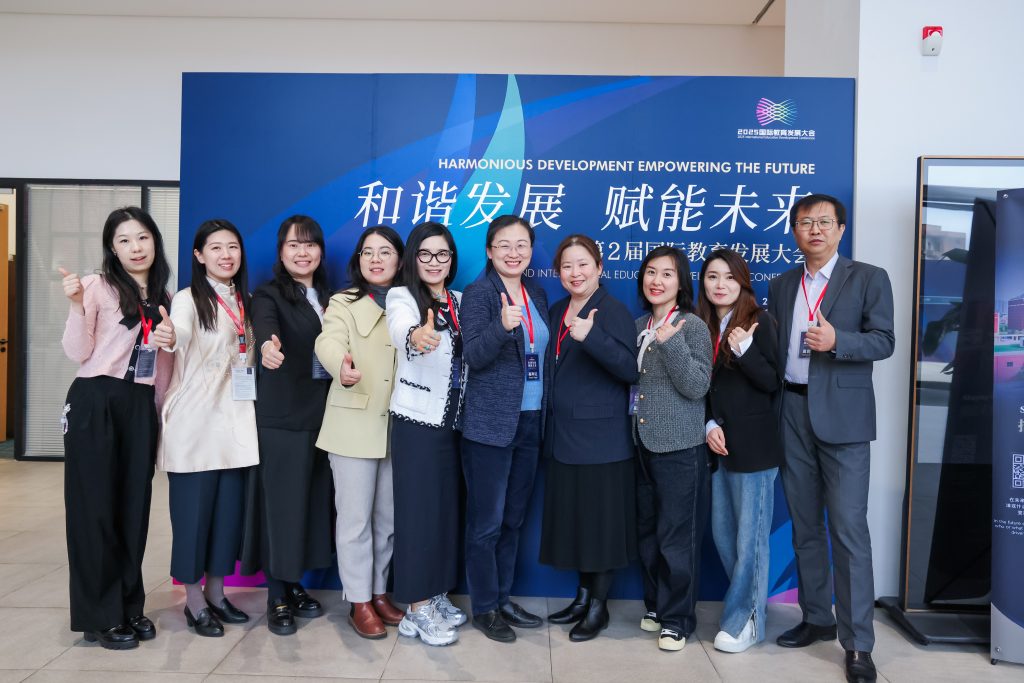
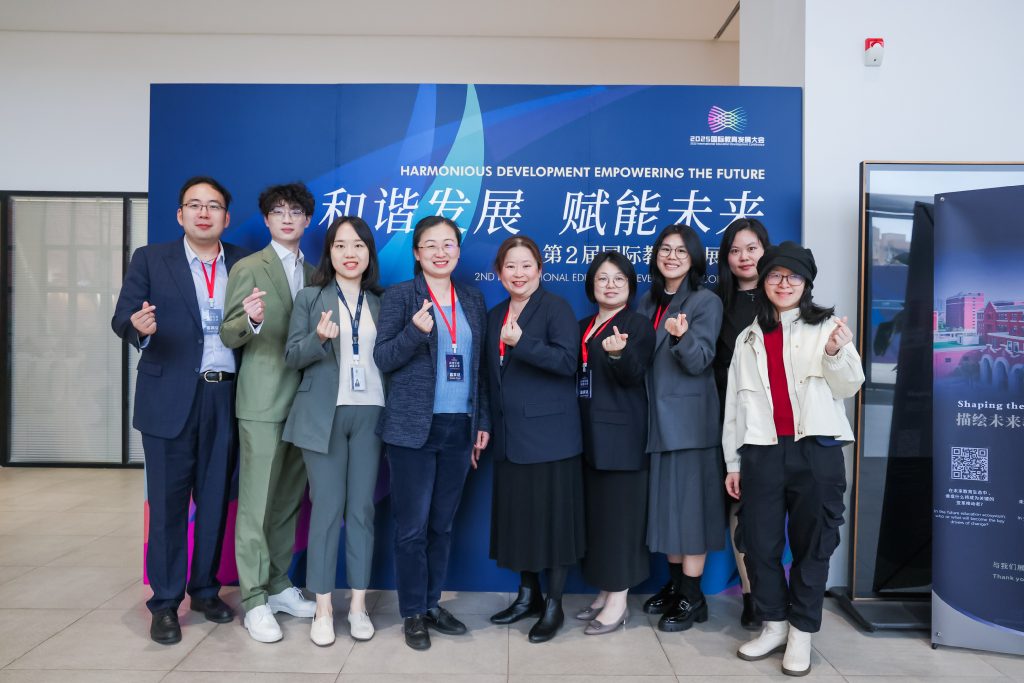
Professor Xiaojun Zhang, Chief Education Officer of XJTLU and Executive Dean of the Academy of Future Education (below), delivered a keynote speech titled “Future Educational Innovation in the Age of Artificial Intelligence: XJTLU's Exploration”. In his speech, he pointed out that the core challenge facing the current education system lies in the fact that the structure formed during the industrialization era is difficult to adapt to the fast-changing social and technological environment: “The traditional education, which is dominated by the classification of subjects and the transmission of knowledge, is gradually showing its limitations in the age of artificial intelligence. When AI is able to efficiently integrate cross-domain information, education needs to shift towards fostering uniquely human capabilities such as creativity, critical thinking, and emotional management.”
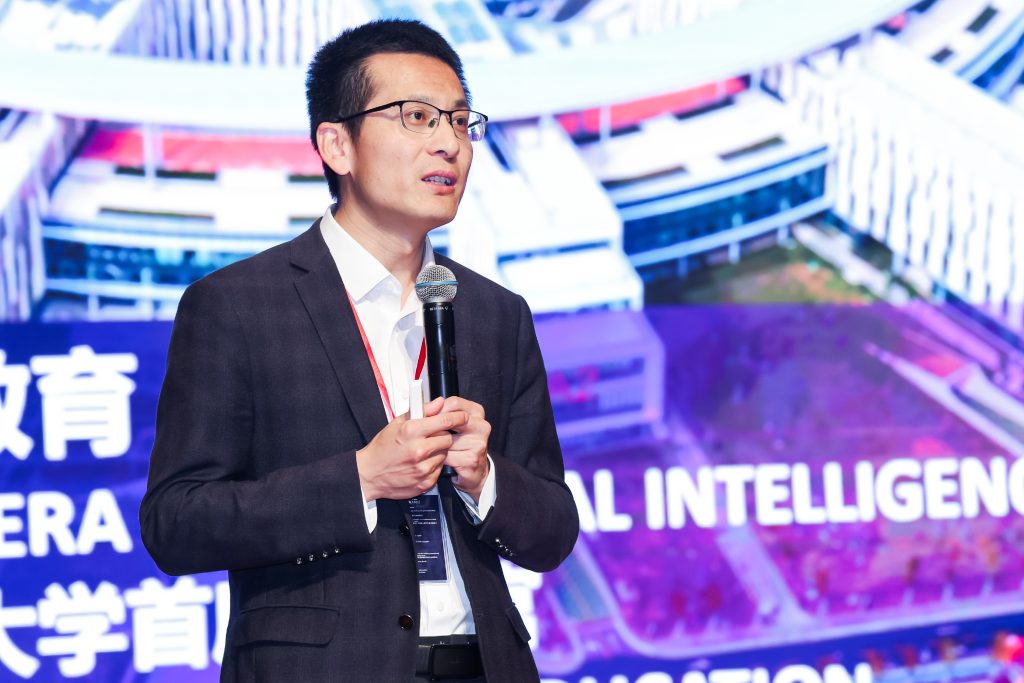
With regard to the transformation of education, he proposed two key directions: first, to build an educational ecosystem of “human-computer collaboration”, to promote the transformation of teachers from knowledge transmitters to learning guides, and to help students solve practical problems through the integration of online and offline; and second, to break through the traditional division of school segments and establish a coherent system to support lifelong learning. Let education serve the personalized development of students rather than being limited to milestones.“”” True educational transformation requires a systematic rethinking of educational goals, updating the evaluation system, integrating social resources, and building a learning environment that supports personalized growth. When artificial intelligence takes over standardized work, the noblest mission of education is to awaken those life qualities that machines can never replicate.
Professor Bo Yang, Chair of the Department of Educational Economics and Management at Peking University, and Professor Jun Li, former Board Member of Western University (Canada) and incoming Chair of its Department of Education Policy and Leadership, each delivered keynote speeches focusing on the theme of globalization and the future of education. Dr. Ahmed Hussain, Chief Education Officer of AISL Harrow Education Group, and Dr. Noman Mohammad, Head of the Department of Educational Leadership and Management at Wenzhou-Kean University, delivered keynote speeches focusing on the interface between higher education and basic education.
This year's conference also featured a number of parallel forums, interactive workshops and poster gallery walks, where experts and scholars from the fields of higher education and basic education as well as EdD students exchanged views with teachers and students from Harrow Ridge School on topics ranging from “Caring for Physical and Emotional Well-being in an Internationalized Educational Environment”, “Exploring Pathways to Sustainable International Education in Changing Times”, “The International Education Ecosystem: How Universities and K-12 Schools Can Create a Seamless Global Learning Experience”, etc, The topics included “Caring for Physical and Mental Health in an Internationalized Education Environment”, “Exploring the Path to Sustainable International Education in Changing Times”, and “International Education Ecosystems: How Universities and K-12 Schools Can Create Seamless Global Learning Experiences”.
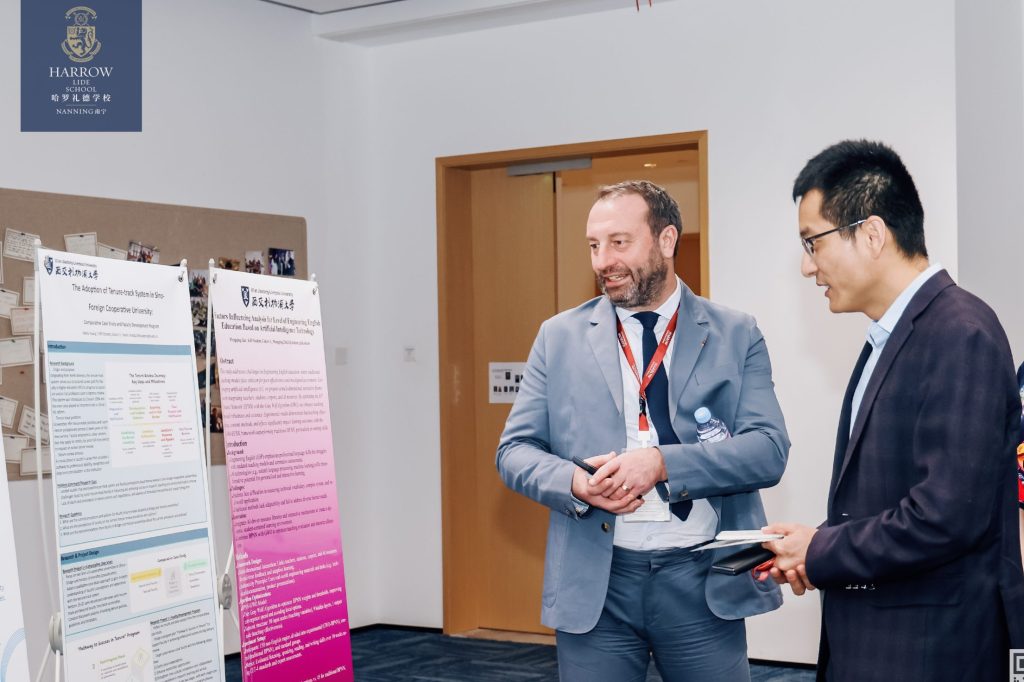
Focus on EdD Program construction and cooperation
At the Conference, faculty and student representatives from EdD programs at Peking University, XJTLU, Wenzhou Kenyon University, Tsinghua University, Xiamen University, University of Western Ontario (Canada), and the Central and Western Institute of Innovation (Macau) came together for an in-depth discussion on the future development of EdD programs. Participants engaged in insightful exchanges around key issues such as program construction, student career paths, learning experiences, and how to more effectively integrate academic research with educational practice. Through the comparative introduction of EdD programs in terms of academic system, curriculum and cultivation mode by the representatives of various universities, the participating teachers and students had a clearer understanding of the characteristics and advantages of different programs, and further clarified the positioning and cultivation objectives of EdD programs.
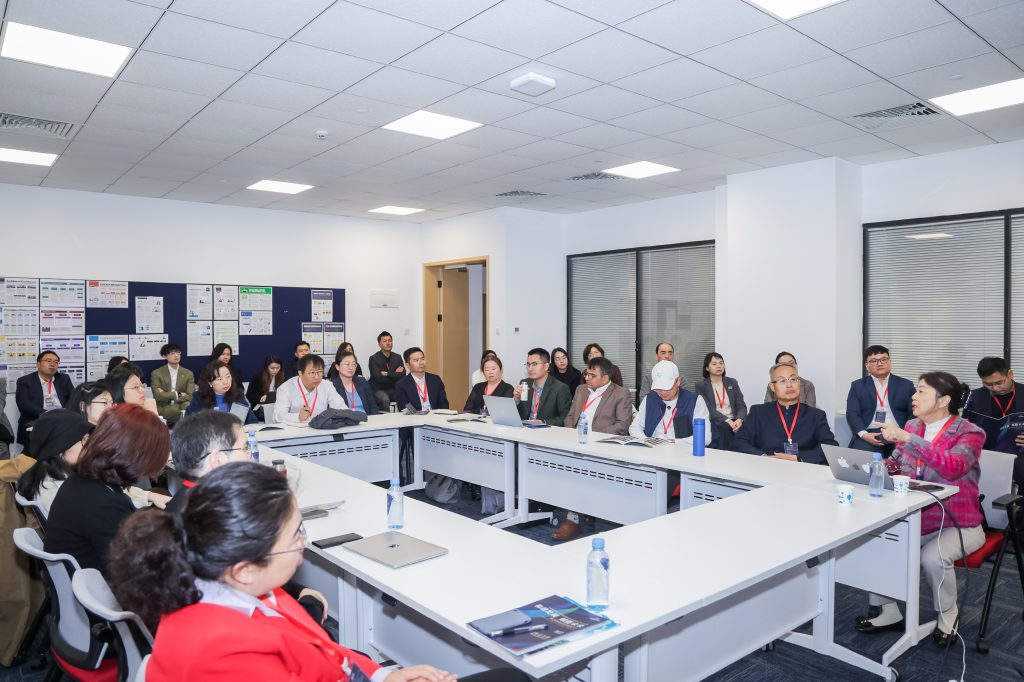
One of the important agendas of this conference is to discuss the initiative of establishing the “EdD Program Innovation Alliance” (EdD Alliance). This alliance aims to unite the EdD programs of renowned universities at home and abroad, and to build a community of academic practice integrating resource sharing, academic exchange and program cooperation through voluntary participation and common governance, so as to improve the level of EdD programs in member universities as a whole. Professor RongWang of XJTLU emphasized, “The EdD Alliance will be committed to cultivating internationalized, innovative, and practical education leaders who can lead the future, and contribute to the educational change in China and the world.”
The EdD Alliance will adhere to the tenet of ‘basing on local educational practice, developing Chinese educational leadership, and promoting global educational understanding and exchange’.
During the meeting, participants actively reported and refined the mission, positioning and goals of the EdD Alliance, and meticulously planned the Alliance's offline activities program and resource sharing program for 2025. Prof. Jun Li, former member of the Board of Regents of the University of Western Ontario, Canada, shared the successful experience of the Carnegie Consortium for the Doctor of Education in North America (CPED) program, and put forward strategically significant suggestions for the future development of the Consortium. Dr. Noman Mohammad from Kenyon University in Wenzhou initiated that specific activities and plans for the coming year should be fully negotiated and determined in each offline activity of the Alliance to ensure the efficient work of the Alliance.
During the field trip, representatives of XJTLU were also invited to participate in the Diplomats' Night in Nanning, where they had in-depth exchanges with diplomats from ASEAN countries.
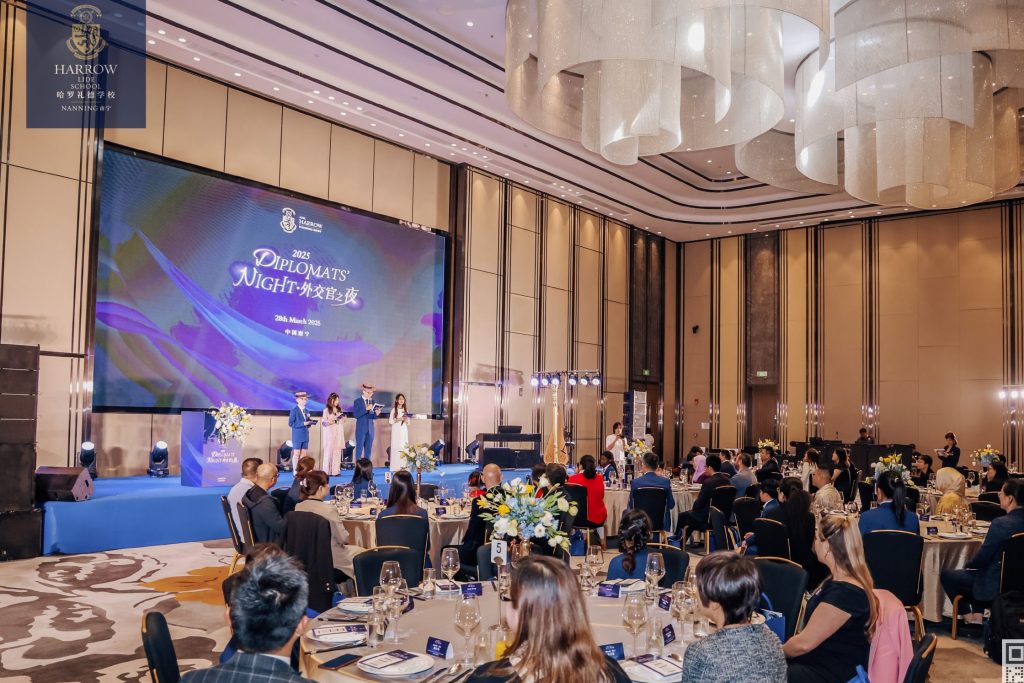
Professor Xiaojun Zhang and Ms. Linwei Li announced a scholarship policy for ASEAN students. The policy, jointly established by Harrow LiDe Nanning and XJTLU, aims to provide integrated scholarship support from basic education to higher education in China, helping ASEAN students to fulfill their dreams in China and cultivate talents for the China-ASEAN Free Trade Area (FTA) to further deepen the regional education cooperation.
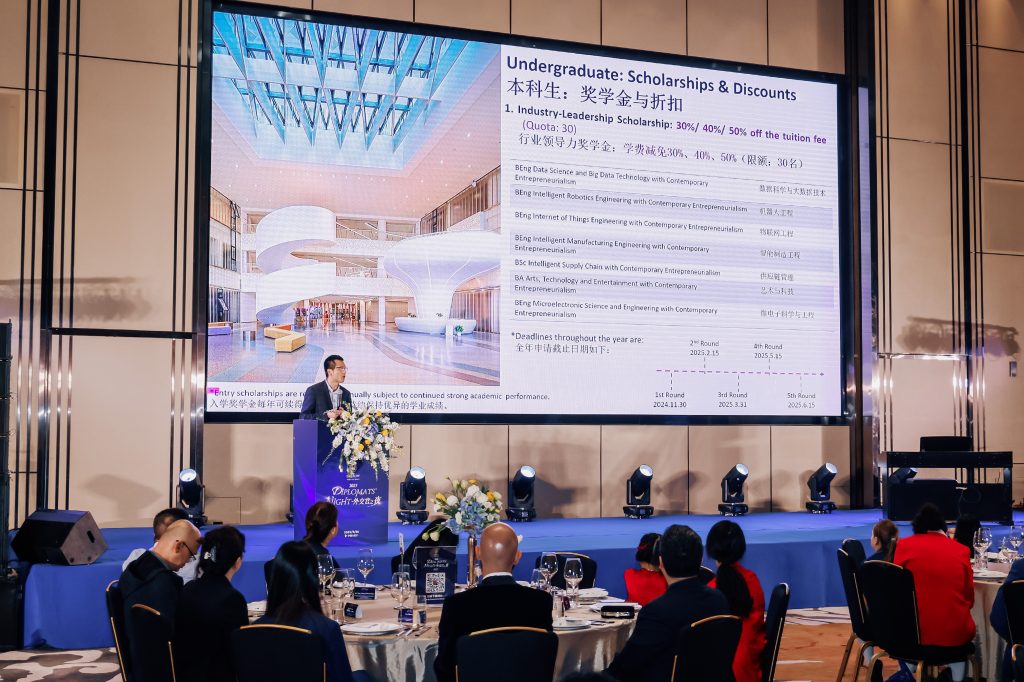
Through this trip to Nanning, the XJTLU EdD program not only built a bridge of dialogue between universities and K-12 education, but also followed the new learning mode of “theory seminar - field trip - cultural experience”. As Dean Zhang Xiaojun said, “When artificial intelligence reshapes the way of knowledge acquisition, educators should stick to the original intention of educating people and cultivate humanistic qualities and innovative abilities that cannot be replaced by machines.”
By Xiaoyan Jin
Translated by Sichen Fan
Photo courtesy of Harrow LiDe Nanning
09 Apr 2025
